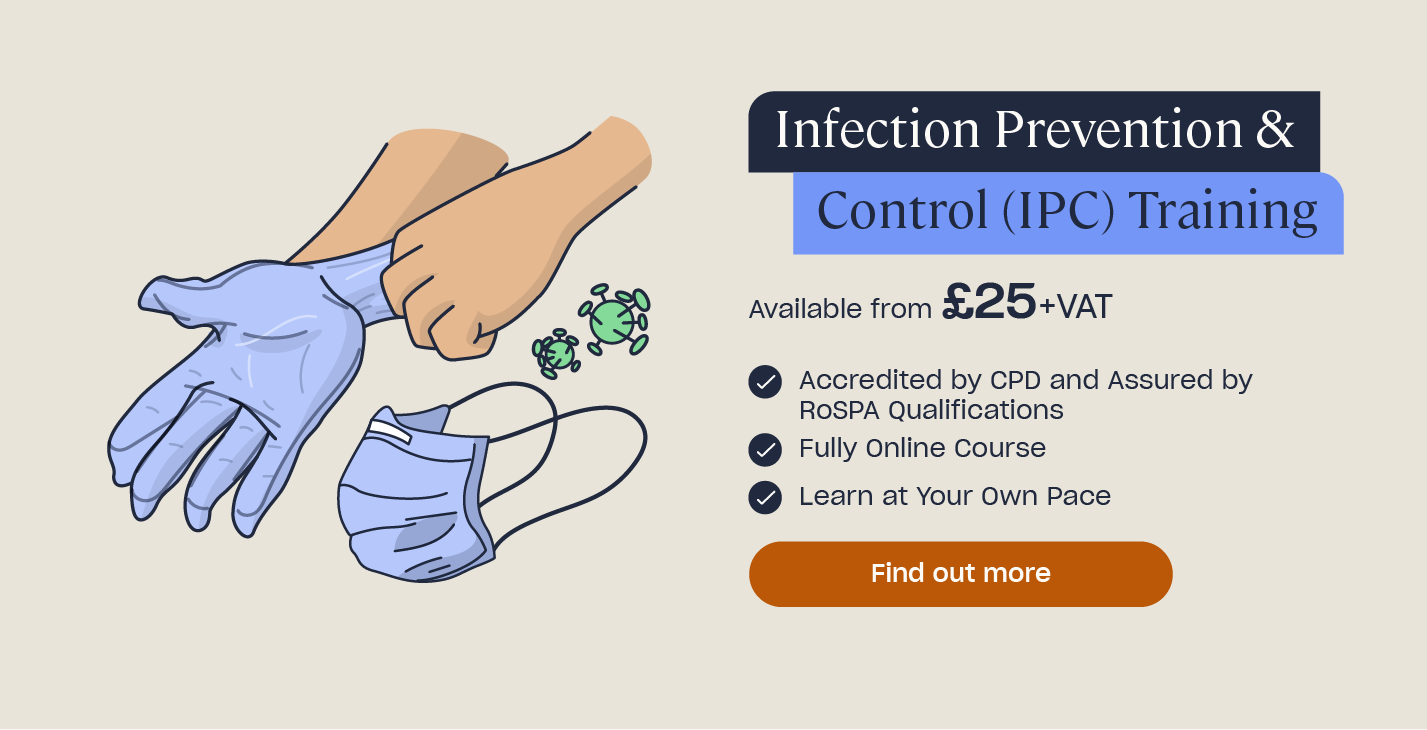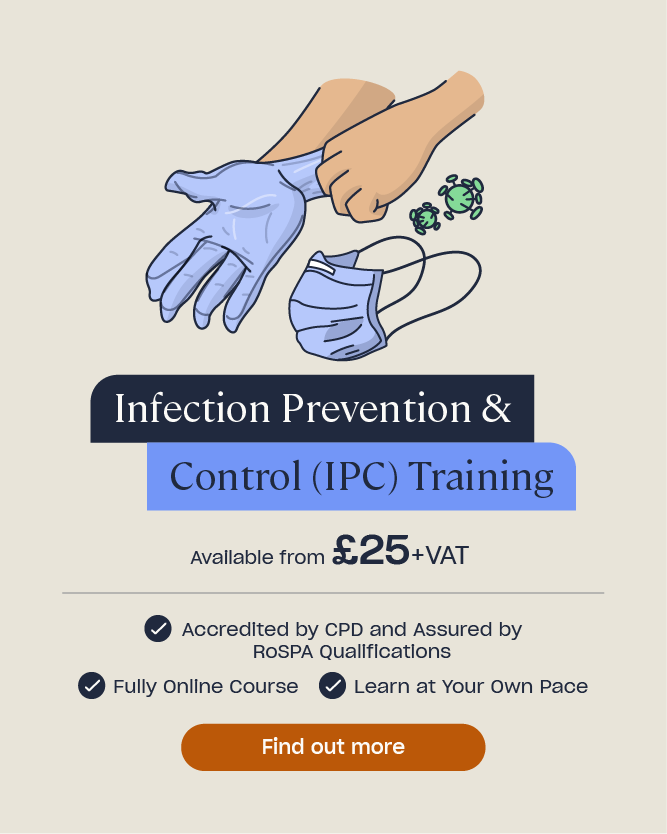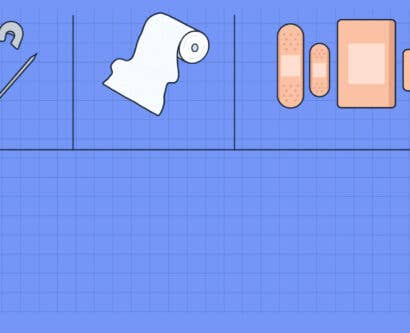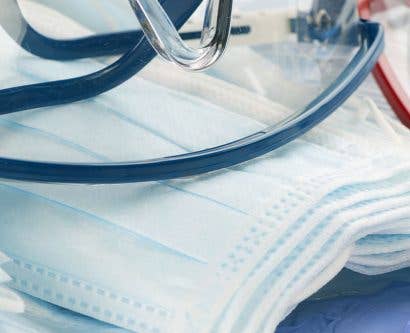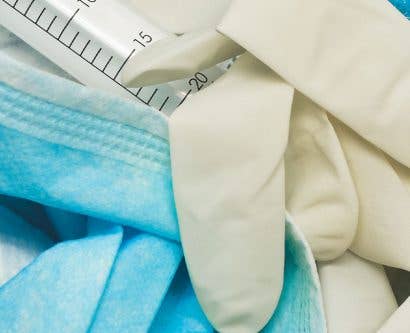Hand Hygiene and Infection Control Quiz
Test Your Hand Hygiene and Infection Control Knowledge
Good infection control and hand hygiene are important even in the best of times. It prevents the rapid spread of microorganisms that can cause illnesses, such as colds and flu, as well as food poisoning bacteria. However, as we all face the current COVID-19 pandemic, maintaining good personal hygiene is more vital than ever before. Understanding effective cleaning procedures and hand washing is crucial, particularly as businesses return to work and implement new safety measures to control COVID-19. If you work in a non-healthcare environment, you should be aware of the infection control and hand hygiene procedures that your workplace needs to follow in light of the virus. Test your knowledge about this topic with our quiz below.
What is an example of good respiratory hygiene?
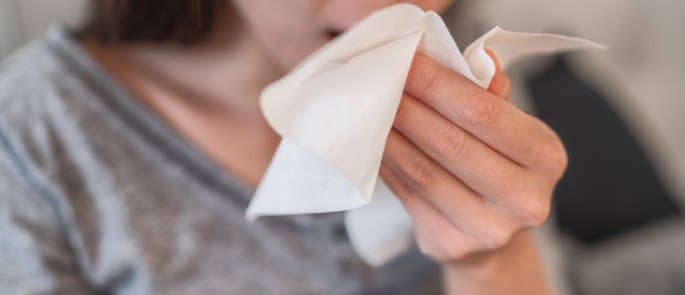
It's crucial that you practice good respiratory hygiene to prevent the spread of hazardous microorganisms. Coughing or sneezing into your elbow or a tissue, and washing your hands afterwards, is best practice.
People must self-isolate at home if they:

If you experience symptoms such as a high temperature, coughing, and loss of taste, it's crucial for you to self isolate to minimise the spread of COVID-19.
Which of these steps is bad practice when removing a face mask?
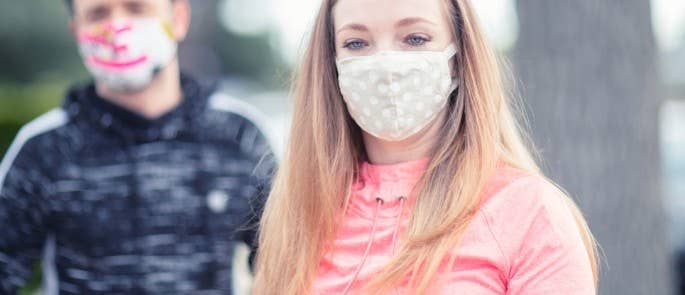
You should not remove face masks by grabbing and pulling them by the central covering, as any contamination on the cover of the mask could then contaminate your hands and spread. You should carefully remove them by the strings, loops, or straps from behind your ears or back of the head.
What is a risk you should be aware of when wearing PPE?
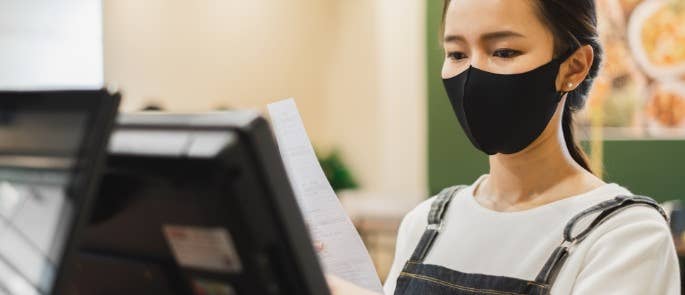
Wearing PPE does not guarantee complete safety from COVID-19. It can create a false sense of security that makes wearers think they will not be exposed to the virus. Be aware that you can still touch surfaces that others have sneezed or coughed on without a mask or from unwashed hands, and gloves can still spread microorganisms they pick up, such as to your phone that you later touch. Maintaining good personal hygiene by frequently washing your hands and not touching your mouth, nose, or eyes is therefore the most important way to prevent the virus from spreading.
How is COVID-19 spread from person to person?

Research shows that COVID-19 is spread through infectious droplets, which can easily contaminate hands and surfaces and rapidly spread. There is currently no evidence to show that the virus spreads in other ways, such as by staying in the air for prolonged periods of time or by multiplying in food.
What should you use to dry your hands after washing them?

It's crucial to dry your hands hygienically after washing them. Using fabric towels for example can recontaminate your hands, as they can remain damp after use and harbour microorganisms.
Who is responsible for providing PPE in a workplace if it must be worn for health and safety reasons?
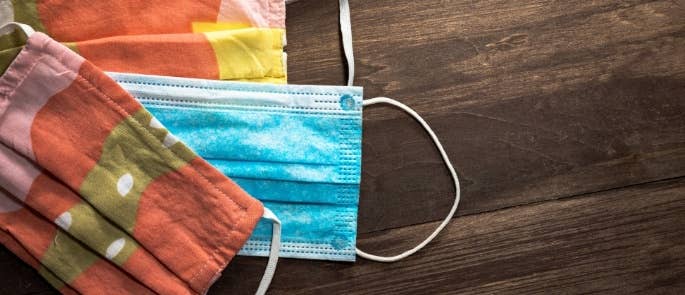
Employers are responsible for sourcing and covering the cost of PPE in their workplace if it must be worn for health and safety reasons. They should also liaise with employees to ensure they pick suitable PPE, e.g. ensuring it's the right size.
What temperature should water be when you wash your hands?
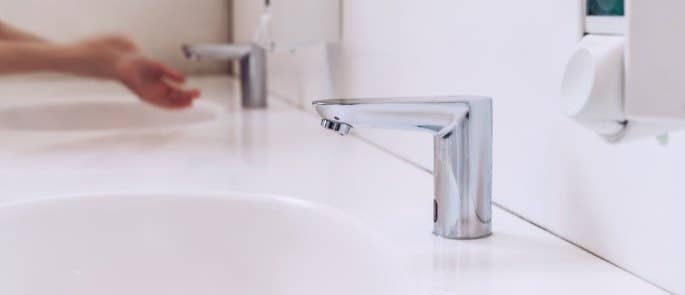
Water should be hot, between 35 ºC and 45 ºC, when you wash your hands. This is most effective for breaking down and removing contamination from your hands.
Why should you wash your hands before putting on gloves?
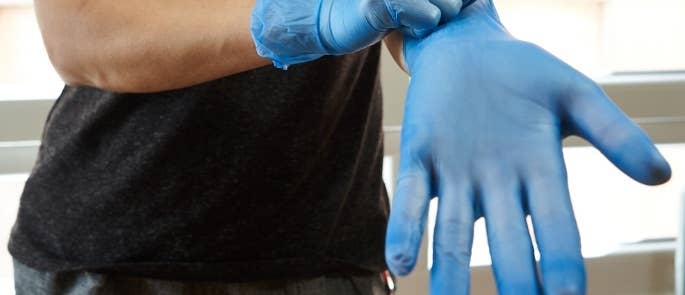
Putting on PPE with clean hands is important to prevent accidental contamination of its surface, which could then spread.
How long should you wash your hands for?
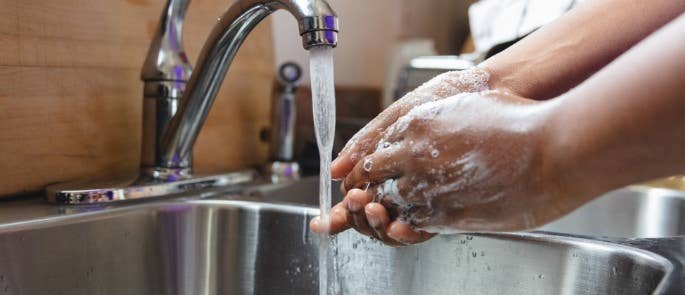
It's crucial to wash your hands for at least 20 seconds to allow the soap or sanitiser to do its work. Any less and you may not fully remove microorganisms.
What is the chain of infection?

The chain of infection helps us to understand how infections spread between hosts. The six steps are 1. organism, 2. reservoir, 3. portal of exit, 4. mode of transportation, 5. portal of entry, and 6. vulnerable host.
When is the use of gloves in infection control vital?
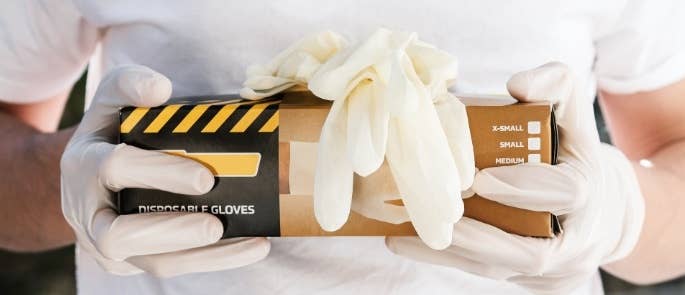
Using gloves when cleaning areas suspected of being contaminated with COVID-19 is essential to prevent accidental cross-contamination and to protect yourself. It also helps to keep your skin safe from irritants like cleaning chemicals.
Share your Results:
What to Read Next:
- Infection Prevention & Control (IPC) Training
- 7 Steps of Handwashing
- Hand Hygiene: Myths and Facts
- What Methods Can Be Used for the Disposal of Infectious Waste?
- How to Prevent Infection: Five Simple Tips
- What are High Touch Surfaces and How Should You Clean Them?


